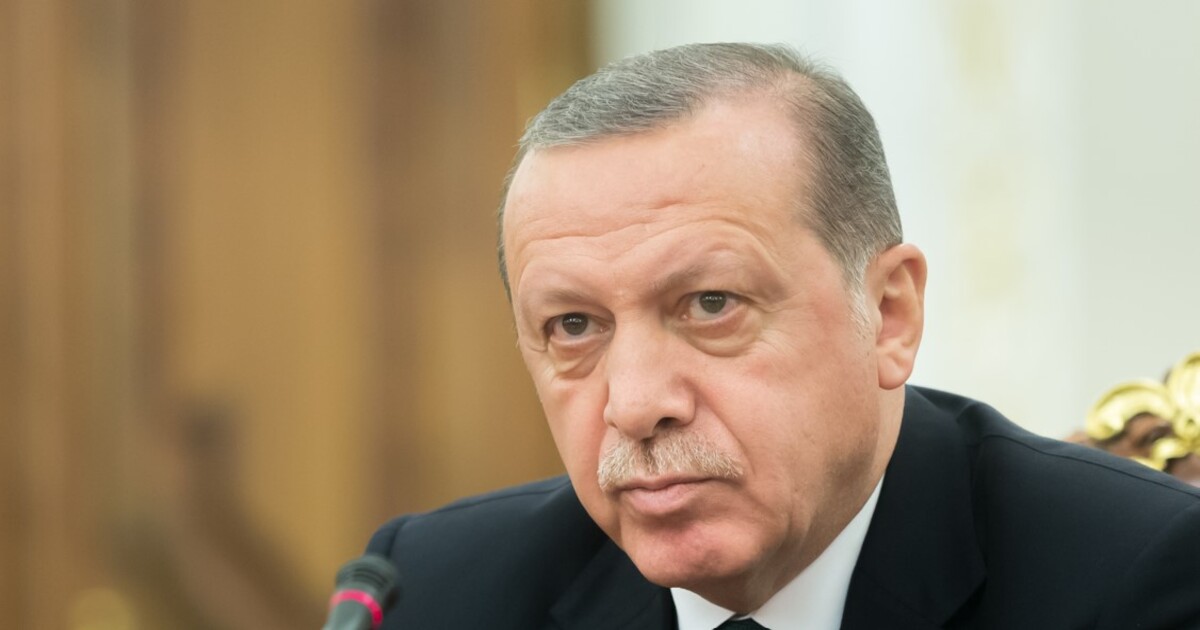Erdogan’s Plan to Shape Syria’s Future
The AKP’s interactions with Egypt’s Muslim Brotherhood and Tunisia’s Ennahda offer valuable insights into how it might engage with Syria’s Islamist leadership.
January 10, 2025

A Strategic Assessment Memo (SAM) from the Global Ideas Center
You may quote from this text, provided you mention the name of the author and reference it as a new Strategic Assessment Memo (SAM) published by the Global Ideas Center in Berlin on The Globalist.
Turkey’s President Recep Tayyip Erdoğan has long longed for this moment of vindication. For him, it is a moment ripe with opportunities — economic, political and geostrategic.
It is also a moment when Erdogan and his team could attempt to craft a success story for an Islamist entity other than their own.
More than they dared to hope for
Erdogan longed for Assad’s fall, hoping only that a group aligned with him and the AKP would succeed the Baath regime. But what he has now is more than he dared dream of just a few years ago.
The man who is poised to rule Syria is a Sunni Islamist leader, backed by Turkey and closely influenced by Erdoğan’s AKP.
The third attempt at leading Sunni Islam
Syria marks the third time Erdogan and his party will attempt to have their Turkey serve as a model. The first attempt was with Egypt’s Muslim Brotherhood (Ikhwan). The second, running parallel, was with Tunisia’s Ennahda.
The Ikhwan period spanned from 2011 to 2013. Interaction with Ennahda lasted longer, from 2011 to 2020.
Given the less than successful earlier episodes, their ardent hope is to create a success story this time around.
Erdogan’s commitment
Speaking aboard his plane after attending the D-8 Summit in Egypt, Erdogan declared that “we will strive to assist them [Syrians] in shaping their state structure. We aim to share our experiences, exploring how they can be transferred to Syria and how a state can be rebuilt within the framework of a new social contract.”
He also highlighted the roles of National Intelligence Organization chief Ibrahim Kalın and Foreign Minister Hakan Fidan, noting their engagement with “all relevant parties from the beginning.”
Two seasoned operators at work
Kalın and Fidan are no strangers to this type of mentorship. They were part of the core team that worked closely with Ikhwan and Ennahda.
They know what worked — and, more importantly, what did not. This positions them to replicate, or adapt, a similar diffusion process between the AKP and Ahmad ash-Sharra’s HTS.
A receptive audience
At the time, the Egyptian Muslim Brotherhood (Ikhwan) and Tunisia’s Ennahda were eager to understand the factors behind the AKP’s success in Turkey — or, as it was often called, the “Turkish model.”
A key factor accounting for the AKP’s success at home was rooted not just in competent economic policy management. The Turkish economy also experienced a prolonged economic growth period as it was favored by Western investors as a good place to do business.
That, of course, is a status which Sunni countries in Northern Africa have never managed to achieve.
A sort-of favored nation status
As hard as it may be to believe now, but in 2011, Turkey was still seen as the West’s preferred Muslim power. Its NATO membership, ongoing EU accession talks and strong ties to European markets positioned it as a bridge between the Islamic world and the West.
Back then, the AKP, with its Islamist roots, was regarded as a European-friendly actor, implementing a market-oriented economic program while being “authentically Muslim” enough to resonate in the Arab world.
This made the AKP model deeply appealing to both the Ikhwan and Ennahda. Their rationale was straightforward — even if ultimately elusive, for reasons of insufficient economic management.
If they could adopt similar strategies or policies, they too could gain legitimacy as effective political actors, capable of governing both domestically and internationally. In essence, they hoped to replicate the AKP’s success.
Problems of governance
However, the Ikhwan and Ennahda also required technocratic and practical guidance. Despite being older movements, they lacked the professional experience of running a political party, let alone governing from a position of power.
As one Ennahda member put it to me several years ago, the AKP was regarded as a “wow machine,” and these two parties needed the tools to build a similar machine.
A decade ago, pragmatism ruled
The tactics deployed by the AKP at the time were notably stripped of ideological content. This was not about invoking Islam as a mechanism for acquiring or maintaining power.
Instead, the essence of the process focused on normalization, legitimization and crisis management. The approach was managerial, aimed at delivering pragmatic solutions to immediate problems.
Complex ideological or social challenges were simplified into practical obstacles requiring methodical, step-by-step resolutions.
Would HTS want this kind of mentorship?
I believe HTS is actually better positioned for this kind of knowledge diffusion than Ikhwan or Ennahda were back in 2011. This is true despite HTS’s radical posturing, violent past and authoritarian tendencies in Idlib.
This past casts doubts about their willingness and capability to adopt AKP’s suggestions for Syria — which crucially include elements such as building alliances across society, participating in elections and becoming mainstream enough to win.
HTS also benefits from distinct advantages. For example, it does not carry the deep ideological fissures or entrenched factionalism that burdened the Muslim Brotherhood in Egypt. They also lack the baggage of past Shura councils or rivalries.
Since 2015, Ahmad ash-Sharra’s has demonstrated a pragmatic willingness to adapt ideologically and strategically when necessary.
Moreover, HTS has been in consistent contact with the AKP — through Hakan Fidan — for the past nine years. This sustained relationship must have fostered a critical foundation of trust and familiarity.
Learning from others
Another advantage lies in HTS’s proven ability to learn and adapt from external models. Reports indicate they studied the Ukrainian war closely, even receiving tactical training from a small group of Ukrainian fighters.
More recently, a Syrian war expert affiliated with HTS, Yasser al-Jundi, revealed that their military academy in Idlib incorporates lessons not only from Ukraine but also from the Azerbaijan-Armenia conflict.
This demonstrates an openness to studying and implementing successful strategies from other contexts.
Outward signals
There are early signs that HTS is already taking cues from the AKP’s advice. One notable example is Ahmad ash-Sharra’s symbolic decision to wear a tie.
This is a subtle yet telling gesture of alignment with political decorum outside HTS’s traditional image. Another is Sharra’s inclusive remarks about Lebanon and the Druze community.
Risks for Turkey
Despite these signs of readiness and willingness to learn, there are countless ways this interaction between Turkey and the new leaders in Syria could fail.
For example, HTS and Ahmad ash-Sharra might stumble — or collapse entirely. A counter-revolution could emerge. Remnants of the Baath regime are already networking in Beirut.
And even if HTS adopts the AKP’s mentorship, there is no guarantee Syria will emerge as a democratic or prosperous state. After all, Turkey itself, under the AKP, has fallen short of such ideals.
Conclusion
Don’t get me wrong. My aim here is not to predict success or failure, but to provide insight into how the interaction between Erdoğan/AKP and Ahmad ash-Sharra/HTS might unfold. It involves a complex, high-stakes process — and its outcome remains far from certain.
Editor’s note: The original version of this article was published in Ezgi Basaran’s Substack “Angle, Anchor and Voice.”
Takeaways
Turkey’s President Recep Tayyip Erdoğan has long longed for this moment of vindication. For him, it is a moment ripe with opportunities — economic, political and geostrategic.
Erdogan longed for Assad’s fall, hoping only that a group aligned with him and the AKP would succeed the Baath regime. But what he has now is more than he dared dream of just a few years ago.
The man who is poised to rule Syria is a Sunni Islamist leader, backed by Turkey and closely influenced by Erdoğan’s AKP.
Syria marks the third time Erdogan and his party will attempt to have their Turkey serve as a model. The first attempt was with Egypt’s Muslim Brotherhood (Ikhwan). The second, running parallel, was with Tunisia’s Ennahda.
As hard as it may be to believe now, but in 2011, Turkey was still seen as the West’s preferred Muslim power. Its NATO membership, ongoing EU accession talks and strong ties to European markets positioned it as a bridge between the Islamic world and the West.
There are early signs that HTS is already taking cues from the AKP’s advice. One notable example is Ahmad ash-Sharra’s symbolic decision to wear a tie.
Even if HTS adopts the AKP’s mentorship, there is no guarantee Syria will emerge as a democratic or prosperous state. After all, Turkey itself, under the AKP, has fallen short of such ideals.
The interaction between Erdoğan/AKP and Ahmad ash-Sharra/HTS involves a complex, high-stakes process — and its outcome remains far from certain.
A Strategic Assessment Memo (SAM) from the Global Ideas Center
You may quote from this text, provided you mention the name of the author and reference it as a new Strategic Assessment Memo (SAM) published by the Global Ideas Center in Berlin on The Globalist.


